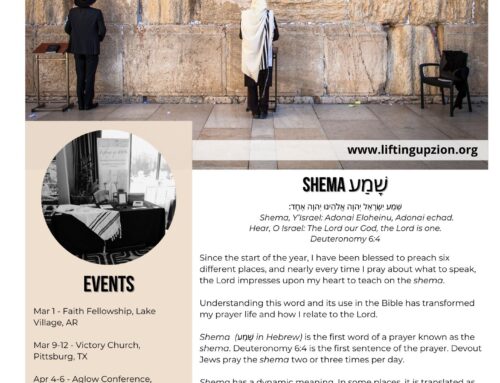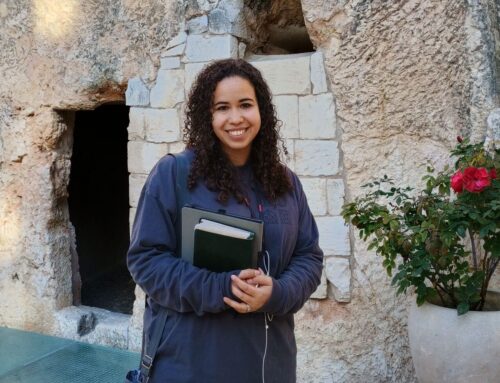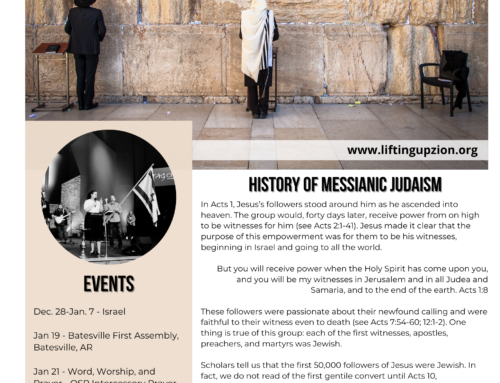In Acts 1, Jesus’s followers stood around him as he ascended into heaven. The group would, forty days later, receive power from on high to be witnesses for him (see Acts 2:1-41).
Jesus (Yeshua) made it clear that the purpose of this empowerment was for them to be his witnesses, beginning in Israel and going to all the world.
But you will receive power when the Holy Spirit has come upon you, and you will be my witnesses in Jerusalem and in all Judea and Samaria, and to the end of the earth.
Acts 1:8
These followers were passionate about their newfound calling and were faithful to their witness even to death (see Acts 7:54-60; 12:1-2). One thing is true of this group: each of the first witnesses, apostles, preachers, and martyrs was Jewish.
Scholars tell us that the first 50,000 followers of Jesus were Jewish. In fact, we do not read of the first gentile convert until Acts 10, approximately seven to ten years after the ascension of Yeshua.
The Jewish believers were the leaders of all Jesus-followers throughout the text of Scripture. When a dispute broke out among Jews about what was required of gentiles who came to the faith, a council convened in Jerusalem.
During this council, the Jewish leaders decided, based upon the work of God among the gentiles and the words of the prophets, that gentiles did not have to convert to Judaism to be full covenant partners with the Jewish believers.
The Jews, however, continued to practice Jewish customs (for example, see Acts 20:16). In fact, Paul instructed believers to “remain in the condition in which he was called” (1 Cor. 7:20). Jews were to remain Jews, and gentiles were to remain gentiles (see 1 Cor. 7:17-20).
Scripture also reveals that the early gentile believers were grateful that the Lord used the Jewish people to minister the Gospel to them. In fact, Paul tells the believers in Rome:
For Macedonia and Achaia have been pleased to make some contribution for the poor among the saints at Jerusalem. For they were pleased to do it, and indeed they owe it to them. For if the Gentiles have come to share in their spiritual blessings, they ought also to be of service to them in material blessings.
Romans 15:26-27
There is bountiful evidence that Jewish believers continued to follow Yeshua and live as Jews after the first century. Epiphanius, a fourth-century Church Father, said of the Jewish believers of his day that:
[They] did not call themselves Christians, but Nazarenes….[T]hey remained wholly Jewish and nothing else…Only in this respect they differ from the Jews and Christians: with the Jews they do not agree because of their belief in Christ, with the Christians because they are trained in the Law, in circumcision, the Sabbath and the other things.
-Epiphanius, Panarion 29
During the first four centuries, as the Body of believers grew, the gentile believers came to outnumber the Jewish believers, and things began to change.
Especially significant to early gentile-Jewish relations within the Body of Messiah was the destruction of the Temple in A.D. 70. (To be continued.)






